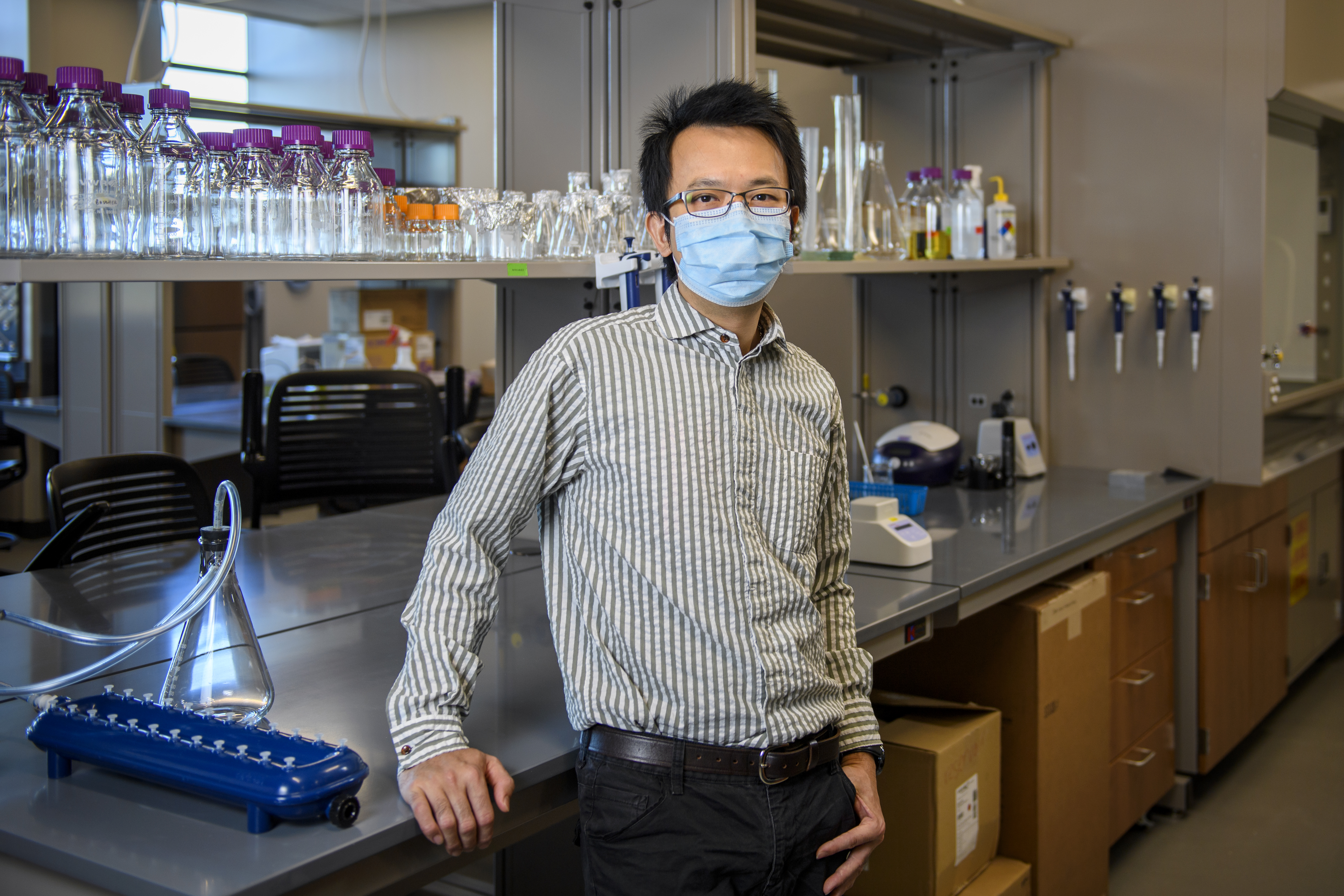DENTON (UNT), Texas — University of North Texas’s Clement Chan’s research group is working on a new, more affordable method to test and diagnose if a person has a disease or has accidentally consumed harmful toxins that can be present in contaminated food and water.
Chan is a protein and cellular engineer and plans to explore the development of cellular devices for tracking physiological changes in the digestive system using a $391,722 grant from the National Institutes of Health.
“Our research approach is to take specific proteins from various organisms, study them, and then modify them using genetic methods,” said Chan, an assistant professor in the Department of Biomedical Engineering. “These modified proteins would then be harnessed to generate new functions and new behaviors in cells and organisms.”
The group’s long-term goal is to engineer bacteria to specifically target, detect and recognize a range of pathogens or toxins and these new bacteria would be safe for humans to ingest.
“If our digestive system is being infected by a pathogen or toxin that lead to diseases, then these engineered bacteria can sense that pathogen or toxin,” said Chan. “Once the engineered bacteria detect it, they can then start to generate some color pigment – red, green, yellow, orange, whatever color chosen – that will show up in a person’s fecal sample, signaling that the person is in need of medical attention.”
Chan’s research could have a big impact on rural or impoverished areas where access to hospitals or expensive high-tech medical equipment may not be possible.
“The test would be more efficient and more cost effective,” said Chan. “The diagnostic could be done and assessed on-the-spot and treatment could begin more immediately."





